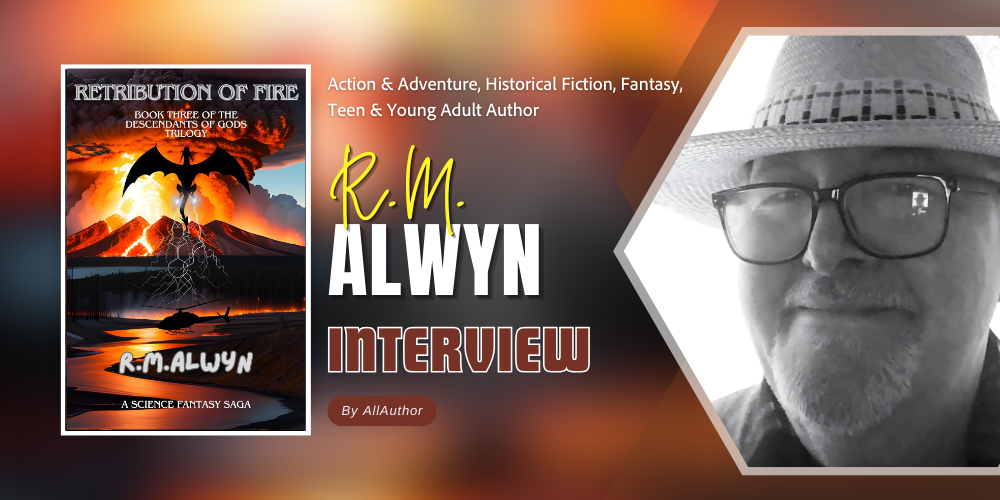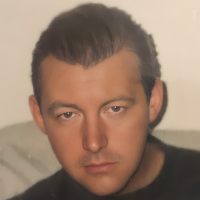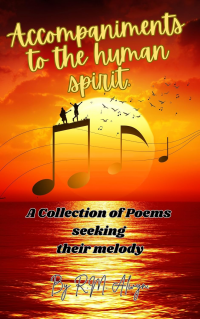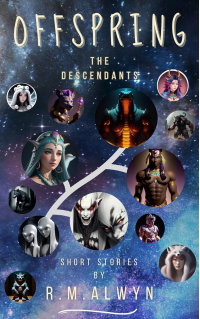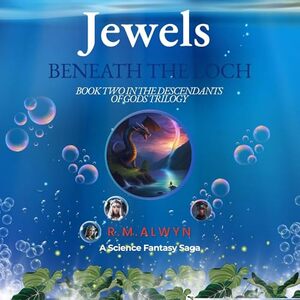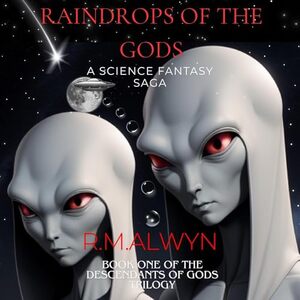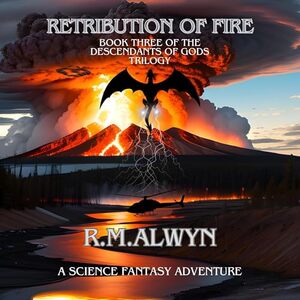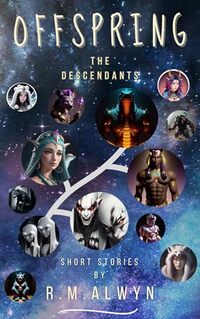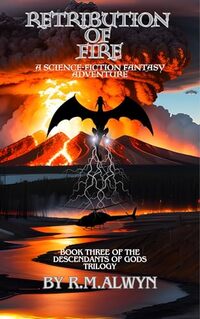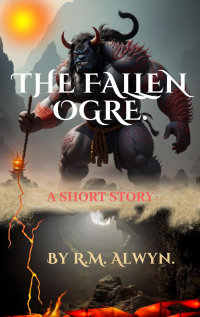Can you share how your early life in Huddersfield, Yorkshire, and education at King James School and Manchester University influenced your writing style and themes?
Growing up in Huddersfield with humble beginnings, I had the privilege of attending King James School for Boys, a prestigious institution with roots dating back to the 14th century. It was a place where literature and history permeated every corner, akin to a real-life Hogwarts minus the magic. The impact of this environment was profound. Later, at Manchester University, my horizons expanded in ways I never imagined. Transitioning from a small town to a diverse community of peers from across the country and the globe was truly enlightening. The varied backgrounds and experiences of my newfound friends left a deep and lasting impression on me. University, as it is for many, marked a pivotal coming-of-age period in my life.
What motivated your decision to emigrate to the United States, and has living in a new country impacted your writing?
Originally, I hadn't intended to settle in the United States, but destiny had other plans when I crossed paths with my future wife. Southern California in the 1980s became the backdrop for our life together, a place that held a special allure. Just as England and the British Isles offer a rich tapestry of settings for storytelling, so too does my current home. I endeavored to weave the magic and intrigue of these diverse locations into the narratives shared with my readers.
Your books and stories often seem to mix elements of myth, nature, and mystery. What draws you to these themes?
My fascination with myths and legends lies in unraveling their origins and understanding how they shape cultural landscapes. These diverse and captivating stories prompt intriguing questions. For instance, why do dragon myths span across continents, despite the lack of interconnection between civilizations? Similarly, the striking resemblances in pyramids and megaliths around the world raise curiosity about ancient civilizations' shared knowledge. As we delve further into the past, the mysteries deepen, with sites like Gobekli Tepe poised to revolutionize our comprehension of civilization's evolution.
I cherish the world and its history, aiming to infuse conservation themes into my narratives. By fostering awareness and sparking contemplation, I aspire to highlight the marvel of existence on this precious blue-green planet.
How did the idea for Raindrops of the Gods originate, and what do you hope readers will take away from it?
The idea for the book originated when me and my kids were spit balling about how human civilization could have been influenced by extraterrestrials in the past. They seemed amazed that their dad who worked for a living could have an imagination and they proposed that I wrote a book. Well the idea took root and over the years I jotted down some ideas, wrote a few chapters and passages from time to time. Amazingly years later, when I put them all together they formed a pretty compelling and interesting story. At least my kids think so!
Jewels Beneath the Loch delves into hidden mysteries. Can you talk about your inspiration for this setting and any research you conducted?
The primary backdrop for my book is Loch Ness in Scotland, the birthplace of one of the world's most renowned myths. Immersed in Celtic culture, this land is rich in history and mystery. Delving into the area's past revealed more than just the infamous monster legend - from the nearby Battle of Culloden Moor to ghost stories surrounding castle ruins, and even tales of witchcraft and a priest confronting the undead. My aim was to intricately blend these elements, providing plausible explanations within an enthralling adventure narrative.
How do you approach short story writing, and do you find it more challenging or rewarding compared to writing novels?
I use short story writing as a means to sharpen and refine my writing skills. Interestingly, I do not differentiate my approach to short stories from that of a novel. Each of my books is essentially a collection of interconnected short stories intricately woven together to craft a broader, more elaborate narrative.
The Rainbow Dragon, The Bear Goddess, and The Fallen Ogre all feature intriguing mythical creatures. What role do mythology and folklore play in your work?
I have a passion for folklore from diverse cultures that drives me to explore lesser-known tales from around the world. I enjoy unearthing stories that may be unfamiliar to many, unless they are from the specific region. For instance, I crafted a narrative featuring a non-binary dragon from Asturias in Northern Spain, a Polar Bear goddess from Greenland, an Ogre from Japan, and stories from the Shoshone people of Yellowstone. My goal is not only to retell these captivating myths but also to imbue them with enhanced essence and allure, creating a richer experience for the readers.
Which authors or books have had the biggest influence on your storytelling, and in what ways?
I find inspiration in the masterful wordplay of J.K. Rowling, the imaginative blend of science and fiction by Andy Weir, and the intricate world and character development of George R.R. Martin. Additionally, the adventure mystery storytelling of Clive Cussler has left a lasting impact on me. If strive to take a little something from all of these remarkable authors. That is my ultimate goal.
You’ve mentioned a desire to educate and inspire readers. How do you balance entertainment with these goals in your writing?
I strive to educate without imposing my views, presenting factual information in engaging and thought-provoking ways that stimulate readers to contemplate their environment, history, and the future of humanity. If readers are inspired to delve deeper into topics that intrigue them after encountering them in my novels, that would be wonderful.
As a writer with a strong sense of place in your work, how do you go about creating settings that feel alive and immersive?
In order to craft vivid settings in my books, I believe it is essential to have personally experienced the locations. By intricately describing the sights and conveying the emotions evoked by my surroundings, I aim to transport readers to the heart of the story. My aspiration is that through my writing, readers can immerse themselves in the narrative and paint their own scenic tapestry with their imagination.
How has your audience in the United States responded to your books, especially ones that are steeped in British folklore or landscapes?
Readers in the US have warmly embraced my stories, particularly those centered around British folklore and locations. The richness of Britain's history, influenced by various tribes like the Celts, Britons, Vikings, Angles, and Saxons, has birthed a tapestry of myths and legends. From the epic of Beowulf to the tales of King Arthur, these narratives resonate strongly with audiences, including Americans, as they offer a glimpse into our shared origins and cultural heritage.
Can you describe any memorable moments or breakthroughs during the creation of your books?
Several significant moments stand out in my journey: 1. The day the book was published, and I proudly shared my achievement with my children who had been my biggest supporters. 2. Holding the first physical copy of the book when it arrived in the mail, feeling the tangible realization of my hard work. 3. Reaching the milestone of selling the thousandth book, proving wrong any doubters and affirming my ability to succeed. Each moment was truly gratifying and memorable.
What is your writing process like? Do you outline your stories extensively, or do you prefer a more organic approach?
I take demonstrates a holistic view. My approach to outlining and organizing my writing process is planned. I use a storyboard on my wall to map out the story's progression, akin to a family tree. That way I feel is a creative method to visualize the narrative structure. I also keep character development notes in notebooks allowing for consistency. I name the chapters with outlines but normally I write them out of order when inspiration comes . It helps foster flexibility and creativity. I then assemble the chapters and if necessary add connecting narratives.. Finally, proofreading for flow ensures a polished and cohesive final product. It works for me.
Are there new projects you’re currently working on, or stories that you’re excited to explore in the future?
The third book just released in the Descendants of Gods Trilogy, Retribution of Fire, completes that journey. Very happy with the whole project. My next project that I’m excited about is to transition from creating flash fiction on Instagram (klingonsreadbooks2) to developing a novel in diary-style format about a space wayfarer extraterrestrial. I am hoping that this new venture captivates readers with its unique narrative approach.
How has your experience with AllAuthor been?
Excellent. Very professional and helpful. Thank you.
